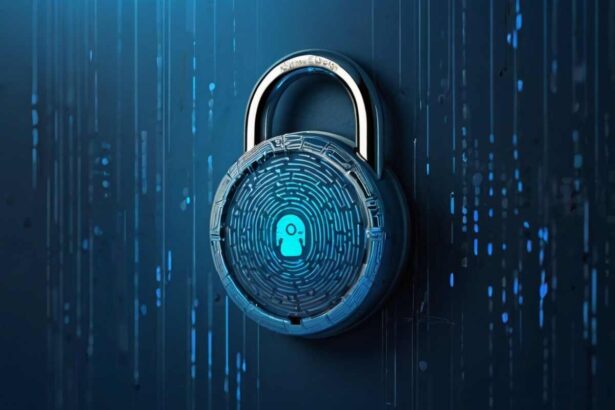Over the past few months, there has been a steady increase in hacks. With the ability to govern one’s financial holdings, cryptocurrency has become a revolutionary type of digital cash. However, due to their decentralized nature, they have become vulnerable to a number of security issues.
The greatest approach to stop cryptocurrency wallet security breaches is to be aware of safe practices. This is because a crypto wallet is your entry point into the cryptocurrency. Even while safeguarding these digital assets presents difficulties, there are several practices that can keep your currency secure.
This extensive tutorial will examine the recommended procedure and standards for Bitcoin wallet security. We will go over the main ideas, strategies, and equipment that can help you in shielding your assets from danger.
Comprehending Cryptocurrency Wallets
This is a digital wallet that is used for storing, managing, and transferring cryptocurrencies. It is where one can store both their private and public keys. They are classified into three main categories: Hardware wallets, Software wallets, and Web wallets.
Hardware Wallets
These are tangible objects that help keep your private keys offline. They are also known as “cold storage”. This is because they don’t operate online thus making them less prone to hacking. Some of the popular hardware wallets include the Ledger Nano S and the Ledger Nano X.
For a better understanding of Ledger Nano X, this guide here got you covered. Follow this link
Software Wallets
These are programs or applications that keep your Bitcoin keys on your computer or mobile devices. They are commonly referred to as digital wallets and can be divided into three categories that is internet, mobile, and desktop wallets. They are very convenient thus they allow everyday transactions since they can easily be accessed.
Web Wallets
This is a software wallet that works with a web browser. They are easily accessible by any device with an internet connection making it easy for users to access their crypto fund. Because of their reliance on outside service providers, web wallets require users to have some trust in the security protocols they have put in place.
Risks to Cryptocurrency Wallet Security and threats
Most crypto wallets are victims of scams and hacks of many kinds. For one to safeguard their wallets appropriately from these threats, you must be aware of them. They always fall into different categories. Let us look at the common threats to crypto wallets.
Phishing Attacks
This is where attackers discover some methods by tricking cryptocurrency owners into disclosing their sensitive information. They may achieve this by creating fake websites or emails that impersonate lawful wallet providers. This structure is usually tame unless the victim is cautious about security, many don’t even get to detect it.
Physical Hacking
This involves the loss or damage of physical devices containing cryptocurrency wallets. Physical hacking is the most unfamiliar threat. It also involves, one breaking the unit part and connecting its circuitry to some special equipment that can be manipulated to interfere with data transfer. There are strategies used to protect wallets against this risk.
(i)You should keep the paper and hardware wallets in a safe place
(ii)One can install extra physical security measures such as safety deposit boxes
(iii)You can also make several copies of paper wallets and keep them in different places.
Counterfeit and Altered Wallets
While purchasing a hardware wallet, one should handle this issue with additional care because even thieves are purchasing them as they leave the factory. There have been many reported cases where cryptocurrency wallet buyers have been deceived by fake ones.
To avoid all these scandals, it is advisable to never purchase hardware crypto wallets from online auctions or second-hand stores. The best thing is to acquire them from the official internet stores of the sellers. Also, when you get it it is good to take a keen look at whether there are any scratches and then compare them to the description on the official web to be able to spot if fake.
#xrpcommunity
🚨🚨🚨🚨
Only order @Ledger Cold Hardware wallets from the company itself.
Do not order from Ebay or an unknown source.
All of my affiliate links on YouTube are legit.
Criminals are mailing altered Ledger devices to steal cryptocurrencyhttps://t.co/4UVkTwtGBb
— James Rule XRP 👊😎 (@RuleXRP) June 17, 2021Malicious Software
This is where a computer or smartphone may be infected with a virus leading to crypto loss. Also, if the victim has a hot wallet, thieves can take the private key and use it to conduct transactions to empty the wallet on their own.
In other cases too, a number of hardware wallets have a small screen that limits the lengthy reading of blockchain addresses. This limiting may require careful matching of the address shown on the hot wallet. Furthermore, since the computer application’s interaction with the hardware wallet can be subject to attacks, it is possible for the address displayed on the screen to be manipulated. Thus, increasing the security of your computer is the best way to ward off software attacks.
The Best Ways To Protect Your Cryptocurrency Wallet
It is crucial to be protective of your cryptocurrency wallet security in the ever-changing world of crypto. Cryptocurrency wallets operate as the gatekeepers of a person’s money thus it is important to put strong security measures. This tutorial will assist in exploring the complex world of digital assets by guiding over best practices and recommendations for maintaining the Cryptocurrency wallet security.
Avoid Keeping Your Own Private Keys
It is advisable that one should not own the alphanumeric code that acts as the key to opening a cryptocurrency wallet alone. Also, it should not be in possession of any company that does not have proper firewalls between custodial places. There has been a growing number of vendors who are implementing appropriate firewalls thus bringing the technical capabilities necessary to mitigate any risks involved. Get it well that one can rarely get back many cryptocurrency types after losing it.
Establishing Robust Passwords and Safeguarding Private Keys
To really develop a secure and distinctive password for your wallet accounts, it is advisable to use a combination of both capital and lowercase characters including both numbers and symbols. It is not good to use information such as your name or the date of your birthday.
Make sure the password is as strong as possible thus it is advisable to choose it randomly from the alphanumeric keys. This really makes it hard for hackers to guess it accurately.
Use Two- Factor Authentification
It is always advisable to use cryptocurrency wallet security and services that demand at least two-factor verification so as to keep your digital cash safe. Two-factor authentication is the second password that is delivered to your phone as a second way of authentication and it keeps one from accessing your wallet.
Different wallets have their own way of enforcing 2FA requirements so that they can verify that you are the owner of the wallet. Most ask for an OTP sent to your phone message or email while others involve the use of biometric authentication.
Have Multiple Wallets
It is the best defense thus it is advisable not to put all your funds in a single wallet. This is because when it is hacked, all your funds are going to be lost. The best thing to do is to distribute your NFTs and Cryptocurrency among several wallets. This tactic has a number of benefits that support asset protection and overall risk mitigation.
One can decide to have different wallets for different things. For instance, one may decide to keep a hardware wallet for long-term storage, a hot wallet for frequent transactions, and a different wallet for particular projects. With this division, every wallet has a distinct function thus losing one doesn’t mean you will lose the entire portfolio.
Be Cautious When Using Public WiFi
Public Wi-Fi networks are frequently less secure thus snooping and sniffing on them is very easy by these hostile actors. They may be able to obtain private information from your data thus using it to take control of your wallet. Thus for optimum results, It is good to connect to a public Wi-Fi via a secure VPN.
There are also Man-in-the-Middle (MitM) attacks where hackers intercept and potentially modify the communication between your device and the network. This occurs in public Wi-Fi networks and in cases of cryptocurrency wallet security, this might result in the loss of private keys and transaction data from your wallet by authorized parties.
You may lower your risk of being a victim of several cyber dangers and improve the overall security of your Bitcoin assets. This is by connecting only to reliable and secure networks.
Use Airdrop With Burner Wallets
One of the most common blunders made by novice cryptocurrency traders is using primary wallets for airdrop. This poses too much risk, this s because certain airdrops may want you to connect your addresses to dubious websites. The best and recommended strategy is to keep your burner addresses separate for airdrop. This is because, in some of the case scenarios, the burner addresses would be compromised.
Making a Proper Backup of Your Digital Wallet
Keeping up-to-date backups of one safe digital wallet at all times helps prevent losing access to your money in case the device malfunctions or in case of theft. It is not good to keep backup data digitally in the cloud but instead, only store it on secured external devices or safe paper copies. Also, before erasing wallet data, it is advisable to try restoring from the backup.
Steer Clear of Dubious Downloads and Links
When you receive correspondence asking you to download files or click links, proceed with caution as these requests may be phishing scams. It is advisable to always double-check the senders’ addresses, URLs, and file extensions.
Be Alert for Phishing Attacks
Phishing Attack creators are becoming increasingly inventive each and every day. Thus, one needs to be aware of their games and keep an eye out for them. Some send links on Twitter or Discord asking you to click. Additionally, they pose as customer service representatives and ask you to dial a code or an OTP from your phone. It is good to be discrete with your information to avoid all these attacks.
Here is a guide by Droom Droom to help you be aware and keep away from phishing attacks. Read here
Keep a Careful Eye on Your Wallet and Transactions
It is advisable to always check your transaction history and account balances for any fraudulent activity by regularly logging into your wallet. Configure alerts for account modifications and keep on publicly accessible blockchain data and in case of any problem, report it right away.
One can also use cryptocurrencies with a privacy focus like Monero and Zcash. This is because they provide increased anonymity by hiding transaction details on their blockchains. This helps keep your balances and addresses in your wallet private.
How Will Digital Cryptocurrency Wallet Security Develop In The Future?
Arms Race in Quantum Computing
Current encryption protocols may one day be broken by quantum computers. The cryptocurrency wallet security of digital assets is put at risk since hackers might simply obtain assets and money. It will be essential to create new quantum-proof encryption since it will be resistant to these attacks.
"China gaining momentum in quantum-computing arms race. ‘They have nearly 2x as many patent families projected for 2017 as the US’ … Quantum comp. manufacturers tend to be in N. America, while Asian-based orgs focus on cryptology & communication apps" https://t.co/1JfruPSOS1
— McCrary Institute (@McCraryCyber) April 10, 2018Enhancement to Biometric Authorization
With more sophisticated biometric verification that uses fingerprint, facial, or voice recognition, Signing into Cryptocurrency wallet security will be a lot easier and safer. Thus identity theft will be less common with digital wallet that uses multifactor biometric authentication.
Tools for Artificial Intelligence Security
For a secure Cryptocurrency wallet security, app experience, AI algorithms will allow real-time monitoring of wallet transactions to identify odd account activity suggestive of theft or hacking. AI will also help check for viruses and phishing scams.
Decentralized Wallet’s Growth
Blockchain-based decentralized wallets would lessen dependency on centralized service providers thus enhancing security. This will help users to have direct control over their funds through the use of private keys.
Conclusion
It is crucial to protect your financial assets in the continuously expanding digital environment. Keeping your cryptocurrency wallet security is a continuous effort that calls for a blend of diligence, learning, and using best practices. You can strengthen your digital wallet against potential risks by adhering to these recommendations. Use string, one-of-a-kind passwords, turn on two-factor authentication, and update your software frequently. Remain knowledgeable, be safe, and safeguard your digital assets.
















